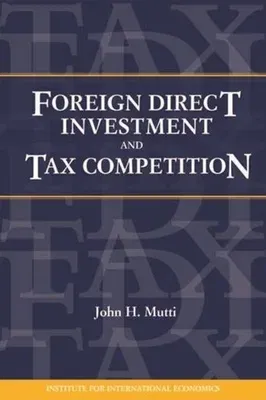John Mutti
(Author)Foreign Direct Investment and Tax CompetitionPaperback, 1 January 2004

Qty
1
Turbo
Ships in 2 - 3 days
In Stock
Free Delivery
Cash on Delivery
15 Days
Free Returns
Secure Checkout

Part of Series
Policy Analyses in International Economics
Print Length
120 pages
Language
English
Publisher
Peterson Institute for International Economics
Date Published
1 Jan 2004
ISBN-10
0881323527
ISBN-13
9780881323528
Description
Product Details
Author:
Book Format:
Paperback
Country of Origin:
US
Date Published:
1 January 2004
Dimensions:
22.86 x
15.24 x
1.02 cm
ISBN-10:
0881323527
ISBN-13:
9780881323528
Language:
English
Location:
New York
Pages:
120
Weight:
45.36 gm